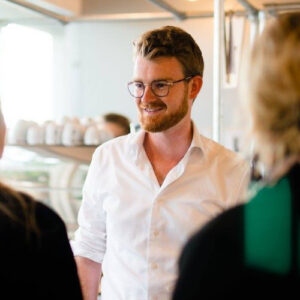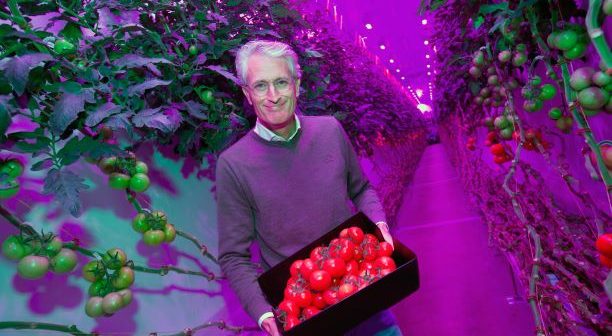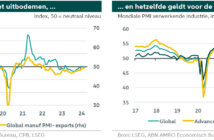Global trends such as climate change, water shortages, population growth and labour shortages all point in the same – vertical – direction: efficient, highly automated solutions for food growing close to population centres and in infertile areas. Vertical farming is a promising high-tech option. Priva is already carrying out projects for it worldwide, from New York to Singapore, and PlantLab runs vertical farms with technology developed in-house, from Amsterdam to Minneapolis (USA).
The social business case for vertical farming
Priva from the Westland, the heart of Dutch greenhouse farming, focuses on climate control, energy saving, process automation and water reuse in greenhouses and utility buildings. Priva uses its combined expertise for vertical farming/indoor growing, food cultivation without daylight. Fifteen years ago the company started the technology development, in cooperation with knowledge institutions such as Wageningen University & Research, and five years later the commercial operation. So says Marinus Luiten, indoor growing business developer. ‘We’ve been really successful with it for the last five years; vertical farming has become future-proof. It contributes to a sustainable food system in which you can grow fresh food locally all year round, regardless of weather conditions and other external influences. The world market is now worth 2.5-3 billion euros and that is much less than greenhouse farming, but it has been growing by 15-16% year after year.’

Marinus Luiten, Vertical farming is not yet profitable here. That is our main challenge. We must always calculate the business case for vertical farming together with the entire chain of technical suppliers, investors and end-users.’
Best of both worlds
Priva is a global player in the traditional horticultural sector and the largest in the Netherlands in building automation. ‘Technically speaking, vertical farming is the combination of these two worlds. Priva is the only company operating in both. We work with our partners from both worlds to carry out complex projects. We are successful in this market thanks to our broad international network of partners, dealers and fitters. You can control vertical farming remotely, but you do have to offer local support, because in the event of a breakdown, a vertical farm really comes to a standstill.’ For Priva, it is a different market to greenhouse farming, in several respects. ‘You have other players, such as start-ups, and atypical competitors, such as building automation companies that suddenly also do climate control in cultivation environments.’ Another difference is the digital connection with end customers. ‘Data forms the basis for them, because they often lack the “green fingers” and the cultivation knowledge. So they want to learn from us about the cultivation process. Thanks to this digital connection, we can do a lot more testing for them, and practice becomes the learning environment for vertical farming. In conventional greenhouse farming, this development is taking place more slowly.’
Challenging downscaling
Priva supplies vertical farming systems for irrigation and fertilisation, sensors for monitoring climate conditions and crop growth, lighting controls, and the climate computer with process control. The challenges in developing the technology for vertical farming were twofold, according to Luiten. ‘Our systems for irrigation and fertilisation are designed for greenhouses of 10-20 hectares, but vertical farms are of course much smaller. Downscaling the technology required considerable innovation. Secondly, the technology used in greenhouse farming is fairly standardised; we can connect the various systems to the climate computer in a plug & play manner. In building automation, every building is different, with a lot of variation in installation technology. That makes control complex.’

Lettuce growing in a vertical farm at 80 Acres Farms, a leading American indoor farming producer. Photo: 80 Acres Farms.
Artificial Intelligence
Vertical farming offers you many controls in order to create optimal growing conditions. Priva’s digital service Plantonomy steers the crop to make maximum use of the possibilities of the biology in the plant, by making use of its natural biorhythm, explains Luiten. ‘Every disturbance is reflected in the crop and minimal disturbance results in a strong, regular and predictable crop. Algorithms optimally control evaporation during the day, allowing the grower to steer the plant towards a certain quality and production, depending on the cultivation objective. With this form of Artificial Intelligence we actually want to reduce the number of controls the grower has to operate. So that even a less educated grower can manage a large area.’ Priva is already testing this service for vertical crops such as tomatoes and cucumbers. Partly because of their large volume, they are more difficult to grow indoors than leafy vegetables such as lettuce and cabbage. Luiten facetiously says: ‘Vertical farming has so far mainly produced ‘crispy water’, such as lettuce. That’s not very difficult to grow. The real challenge lies in high-value crops such as peppers and tomatoes. Plantonomy should help with that.’
Economic justification
Priva has already established vertical farms in a wide variety of locations, from New York and Singapore to the far north of Canada. In the Netherlands it does research but has yet to carry out any commercial projects, because conventional greenhouse farming generates extremely high yields. ‘Vertical farming is not yet profitable here. That is our main challenge. We must always calculate the business case for vertical farming together with the entire chain of technical suppliers, investors and end-users.’
PlantLab: 1 billion turnover by 2029
Another Dutch developer of vertical farming solutions is PlantLab in Den Bosch. For a long time, the company mainly conducted contract research for crop breeders, but recently the business model has changed to in-house production. Last year, Michiel Peters, a veteran of the Dutch manufacturing industry, was appointed CEO. ‘We have developed patented technology and conducted research into growing crops under 100% controlled conditions. That knowledge and experience was necessary for scaling up; now our technology is marketable. I get to implement PlantLab’s growth plan: change the food chain and produce our own crops. Vertical farming is one of the pieces of the puzzle for a sustainable food supply. People need to eat more plants and fewer animals, and we need to grow those plants in a way that the environment can cope, without pesticides and wasting water.’

Theo Kneepkens
(KLA) about supercycle of growth: Í hope that supply industry expands its capacity’. Read this edition of link magazine digitally via this link
Moreover, vertical farming can drastically shorten food chains. ‘Our vertical farms enable us to be close to consumers, which means we can deliver much fresher products with 100% transparency.’ PlantLab now has two farms operational, in Amsterdam and Minneapolis (USA). ‘We produce lettuce, herbs and tomatoes and sell them through partnerships with local parties such as online supermarket Picnic. ‘Harvested in the morning, our products can be in the consumer’s kitchen in the afternoon. So much fresher, tastier and of better quality, as if your food comes from your own vegetable garden every day. We are building our next farm in the Bahamas. The climate on these islands is not suitable for growing fresh vegetables and during the COVID crisis supplies by ship or plane proved difficult. A small vertical farm can already have a major impact there.’
PlantLab’s new business model is therefore not to sell technology or installations to farmers, but to use them for its own production. ‘We have knowledge of plants and cultivation recipes as well as of technology and climate control under one roof. The symbiosis between the two, combined with our own production, makes us unique. Of course we work with suppliers in the world-class Dutch horticultural ecosystems. This enables us to innovate quickly, using the feedback from our farms. We are now perfecting the cultivation of other crops and fathoming the optimum growing conditions. Our goal is 1 billion euros in turnover by 2029.’






